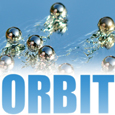The potential of technology: Difference between revisions
No edit summary |
No edit summary |
||
| (8 intermediate revisions by 4 users not shown) | |||
| Line 1: | Line 1: | ||
{{ResourcePageGroupMenu|vital}} | {{ResourcePageGroupMenu|vital}} | ||
{{Rinfo | {{Rinfo | ||
|type= Teacher Education | |||
|attribution={{VITAL}} | |||
|title= The potential of technology | |title= The potential of technology | ||
|topic= | |topic= ICT | ||
|subject= | |subject= Teacher Education, Secondary | ||
|resourcenumber=TE0031 | |resourcenumber=TE0031 | ||
|age= | |age= KS4 , KS5 , KS3, Higher, Secondary | ||
|content=Course information<br />Learning outcomes<br />Course schedule<br />Introduction<br /> Preparation for the face-to-face session<br />Assessment requirements<br />Information about the face-to-face session<br />Following the face-to-face session<br /> Planning delivery of the unit<br />Reporting back<br />Shared learning<br />Evaluation and certification<br />References | |content=Course information<br />Learning outcomes<br />Course schedule<br />Introduction<br /> Preparation for the face-to-face session<br />Assessment requirements<br />Information about the face-to-face session<br />Following the face-to-face session<br /> Planning delivery of the unit<br />Reporting back<br />Shared learning<br />Evaluation and certification<br />References | ||
|strategy= | |strategy= | ||
|Learning Objectives='''Professional and reflective practitioner skills'''<br />At the completion of this course, students should be able to:<br />* identify opportunities to develop and assess learners’ personal, learning and thinking skills through delivery of The potential of technology unit, <br />* recognise how the retail industry can support delivery of the Diploma in IT through different types of engagement including work experience placements.<br />'''Practical skills'''<br />At the completion of this course, students should be able to:<br />* apply the assessment criteria for the appropriate awarding body to learners’ outcomes generated by activities in the e-skills UK resources, <br />* recognise and assess the functional skills demonstrated by learners as they complete tasks and activities in The potential of technology unit, <br />* understand how to embed available resources into a delivery plan for The potential of technology unit, <br />* work with learners on the tasks and activities available within the retail lifecycle resource to produce outcomes appropriate for assessment, <br />* make effective use of the retail lifecycle ‘successful selling’ activities to support learners engaging in enterprise projects.<br />'''Knowledge and understanding'''<br />At the completion of this course, students should be able to demonstrate:<br />* that you understand how to use e-skills UK teaching and learning resources in conjunction with local employers to deliver The potential of technology unit, <br />* that they know how they and their learners access the e-skills UK learning resources through the Staffroom and Back to School websites.<br />'''Cognitive skills'''<br />At the completion of this course, students should be able to:<br />* identify how work experience placements in the retail sector can be used to support delivery of The potential of technology unit, <br />* identify opportunities to make use of local employer engagement within the retail sector to support learners’ understanding of how technology supports business. | |||
|additional resources= | |additional resources= | ||
|useful information= | |useful information= | ||
| Line 15: | Line 19: | ||
|resources= http://www.vital.ac.uk/community/mod/oucontent/view.php?id=1610&direct=1. Users '''must register''' with the VITAL website (free registration) before they can access the resource. | |resources= http://www.vital.ac.uk/community/mod/oucontent/view.php?id=1610&direct=1. Users '''must register''' with the VITAL website (free registration) before they can access the resource. | ||
}} | }} | ||
[[Category:Secondary]][[Category:Teacher Education]] [[Category:External Resource]] | [[Category:Secondary]][[Category:Teacher Education]] [[Category:External Resource]][[Category:ICT]] | ||
Latest revision as of 18:38, 31 January 2015
- Blog skills for subject specialists
- Copyright: keep it legal
- ESafety KS1
- Getting a buzz out of blogging
- ICT support in education (practitioner)
- Introduction to games
- Learning platforms all aboard
- Learning together developing wikis
- Learning together introducing wikis
- Making games and motivating learners KS2
- Multimedia skills and applications
- Researching and evaluating a digital game for the classroom
- Sharing ideas - developing wikis (primary)
- Sharing ideas introducing wikis
- The potential of technology
- Using the game Spore to motivate learners KS3
- Website development skills and applications
- Working with multimedia
- Wow them with wikipedia
- Writing using multimodal approaches KS1
- Writing using multimodal approaches KS3
About. Course information
Learning outcomes
Course schedule
Introduction
Preparation for the face-to-face session
Assessment requirements
Information about the face-to-face session
Following the face-to-face session
Planning delivery of the unit
Reporting back
Shared learning
Evaluation and certification
References
Pedagogical content. In this unit, learners will explore the potential of technology/ICT(i) in a business context. This secondary course, which focuses on how technology is used as part of the John Lewis retail life cycle, demonstrates how to use the e-skills(topic) resources to deliver the unit. (edit)
| Resource details | |
| Title | The potential of technology |
| Topic | [[Topics/ICT|ICT]], [[Topics/E-skills|E-skills]] |
| Teaching approach | [[Teaching Approaches/|]] |
| Learning Objectives | Professional and reflective practitioner skills |
| Format / structure | Various online activities. |
| Subject | [[Resources/Secondary|Secondary]], [[Resources/Teacher Education|Teacher Education]] |
| Age of students / grade | [[Resources/KS5|KS5]], [[Resources/Secondary|Secondary]], [[Resources/Higher|Higher]], [[Resources/KS4|KS4]], [[Resources/KS3|KS3]]
|
| Other (e.g. time frame) | Duration of the course: 7 hours over six weeks |
| Files and resources to view and download | http://www.vital.ac.uk/community/mod/oucontent/view.php?id=1610&direct=1. Users must register with the VITAL website (free registration) before they can access the resource.
|

